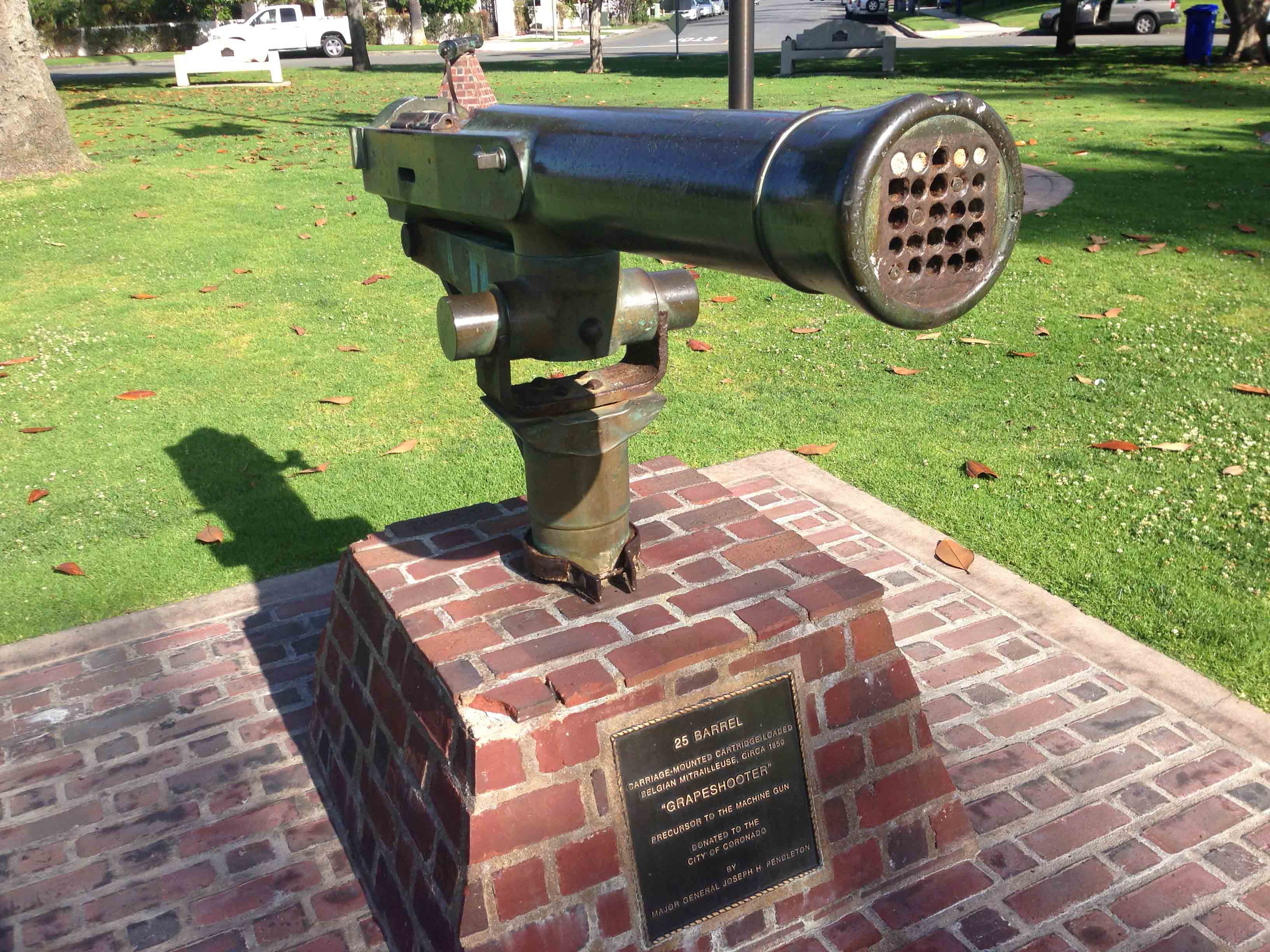
Another in a regular series of fascinating, intriguing, or thoughtful tales about people and places in Nado history — presented by your Coronado Historical Association
Just last week I was passing by Star Park on a pleasant and sunny morning three young mothers were shepherding as many rambunctious children who were joyfully climbing over, under and on top of the two ancient cannon of the park. There was little thought, that I could see, of what these guns were all about, but a lot of thinking devoted to climbing further out along the smooth bores than anyone else.
We all know about the two cannon on Star Park, don’t we? Everyone has seen them and many have stopped to read the small and briefly-worded informational plaques that adorn them.
The real story is that each has its own surprising history a history in two dimensions: the underlying story about the significance of the guns themselves and the intriguing story about who brought them to Star Park.
The gun on the eastern side of the park (closest to the Hotel Del) looks much more modern, something like a machine gun of some kind. Its plaque is far from understandable, calling it a Belgian “Mitrailleuse,” whatever that means.
Ah, but therein lies its true significance. As it turns out, this gun is rare and, in its own way, tremendously historic, reflecting a major advancement in weaponry. If there are others like it somewhere in the world the odds are that they are in national-level museums, meticulously restored and proudly displayed.
Clues to its significance are there if you know where to look. For instance, the barrel is not really a “barrel” in the sense of rifle barrel, but 25 different barrels gathered together in a 5×5 grid.
Furthermore, the gun’s nickname (as per the plaque) is “Grapeshooter” and “Grape Shot” is a seventeenth or eighteenth century term that means firing not cannon balls but rounds that throw out many smaller pellets over a wide area. Buckshot is one example of this approach and artillery grapeshot was generally used as an anti-personnel round that could tear into a group of soldiers with devastating results.
A Mitrailleuse (from the French “mitraille”, specifically referring to grapeshot’) was first invented in 1851 by the Belgian Army Captain Fafschamps. The cannon could be fired round-by-round or in a 25-round volley. Rather than what the sign on the gun says, this specific cannon was probably built sometime in the 1860s and may actually be of French origin rather than Belgian.
The French and Belgian armies were the first users of this concept and the Mitrailleuse was used extensively during the Franco-Prussian War (1870-71) as regular weapons of field artillery units.
The gun’s greatest significance was that it predated the better-know Gatling Gun by more than a decade and both served as precursors to today’s common machine gun. A hand-operated gun similar to a Mitrailleuse but fired by a hand-crank (called a “Coffee Mill Gun” as it looked similar to a common kitchen coffee grinder) was experimentally introduced into the Union Army during the Civil War.
The term “mitrailleuse” is still in use today, meaning “machine gun.”
To be continued ..
(BL) www.coronadohistory.org © CHA




